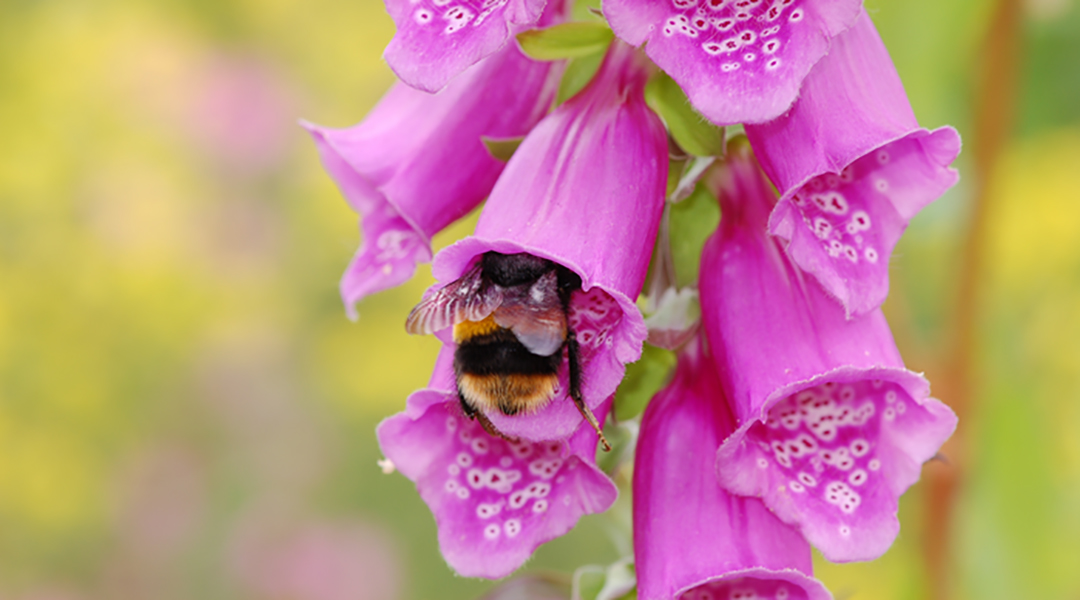Image credit: Matthias Becher
Solutions to help pollinators can be tested using a “virtual safe space” tool created by scientists at the University of Exeter in collaboration with farmers and land managers. BEE-STEWARD is a decision-support tool which provides a computer simulation of bumblebee colony survival in a given landscape.
The tool lets researchers, farmers, policymakers, and other interested parties test different land management techniques to find out which ones and where could be most beneficial for bees. BEE-STEWARD — which is freely available online — is a powerful tool that can make bumblebee survival predictions, according to a new study.
“We know that pollinator decline is a really big problem for crops and also for wildflowers,” said Grace Twiston-Davies, of the Environment and Sustainability Institute at the University of Exeter’s Penryn Campus in Cornwall. “BEE-STEWARD takes into account the many complicated factors that interact to affect bumblebees. This provides a virtual safe space to test out different bee-friendly management options.
“It’s a free, user-friendly tool and we have worked with land managers and wildlife groups on the ground to create it together.”
Disentangling the many factors that affect bumblebee colonies is incredibly complicated, meaning real-word testing of different methods by land managers is often not feasible. This problem prompted the Exeter scientists to create the BEEHAVE (honeybees) and Bumble-BEEHAVE (Bumblebees) computer models. But to help bumblebees thrive across our landscapes, these tools need to be used by people on the ground and not just scientists.
BEE-STEWARD is being used by the Bumblebee Conservation Trust to help test and guide land management to help bumblebees and farm business thrive in Cornwall. Using BEE-STEWARD, bee-friendly actions are being tested across 1,500 ha of land in collaboration with the Duchy of Cornwall Estate, the National Trust, Treiwthen Dairy and Kellys of Cornwall. It can simulate the growth, behaviour and survival of UK bumblebee species living in a landscape providing various nectar and pollen sources to forage on.
“The BEE-STEWARD model is a significant step towards enabling practitioners to support bumblebee populations,” said Professor Juliet Osborne, who leads the team. “The tool can be used to inform conservation and farming decisions and for assigning bespoke management recommendations.”
Professor Osborne and team won the BBSRC Social Innovator of the Year 2017 award for creating the BEEHAVE models.
“We have worked with researchers and landowners who have been using the model and have given us valuable feedback so we could improve our models further,” said model developer Dr Matthias Becher.
“Testing the BEE-STEWARD tool has helped us predict how best to provide new and improved habitat for pollinators in an informed way, considering existing and proposed flora, flowering times and location,” said Ashley Taylor, Assistant Land Steward, Duchy of Cornwall Estate. “This has focused decision making by identifying pollinator habitats that are lacking in a particular landscape, enabling us to focus our attention to improve and protect these specific areas.”
BEE-STEWARD could be an important virtual test-bed for scientists exploring the impacts of different stressors on bumblebees and used by those with little or no modelling experience. Enabling a shared methodology between research, policy and practice for bumblebee survival.
“’The Bee-Steward model will be fantastic for conservation planning — it lets us time-travel to see the long-term results of changing management and compare all the possible options to see which one will work out best for bumblebees,” said Dr Richard Comont, Science Manager, Bumblebee Conservation Trust.
Reference: Grace Twiston-Davies, et al., BEE-STEWARD: a research and decision support software for effective land management to promote bumblebee populations, Methods in Ecology and Evolution (2021). DOI: 10.1111/2041-210X.13673; press release provided by University of Exeter

















